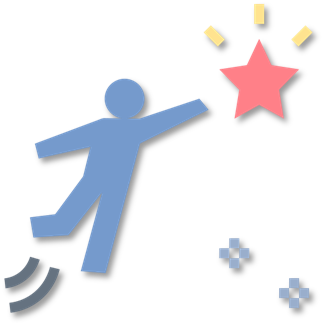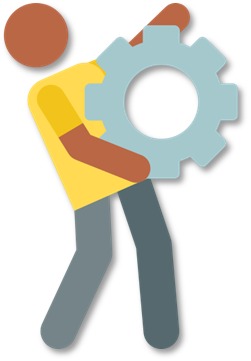Use Case 1:
A relative comes to visit
| Topic | Question | Answer |

Stakeholders | What users/stakeholders are involved in your use case? (if there are many, choose 3 max to focus on) Please add the name, age, gender, and one hobby (i.e. a first step towards the identification of personas). | - Person with Dementia (PwD):
Betty (mother), 85 years old, likes discussing different kinds of tea, smoking three packs a day, and playing bridge. She is generally a pretty stubborn person and likes to do things her own way. - Relative:
Kees (son), 55 years old, likes cycling and langlaufen. He is generally not very extraverted or care-oriented.
|

Stakeholders' goal | What do these people want to achieve? | - PwD:
She wants to be able to organize and take care of her own life. She wants to remain independent while maintaining her social contacts well. - Relative:
He wants to visit his mother without having to organize much or check in with her.
|

Values and motivation | Why do these people want to achieve this? - What are the main drivers?
- Which values are relevant (e.g., fairness, equality, autonomy, …)?
| - PwD
Motivation:
She wants to be able to prepare a relative visting. She wants to make her guest feel welcome and not have to rely on the visiting relative to take care of the visit.
Values: - Relative:
He wants to be able to not worry about taking care of his mom. He wants to keep up his social connection with his mom.
Values:
|

Role, task and context | What is humans' role in the overall task performance or activities? (e.g., think about the responsibilities) What are the main tasks or activities of these people? (Note that the roles, tasks or activities of humans can change due to the introduction of new technology) Which context factors have a major effect on the performance or activities? | PwD
Responsibility:
It is the patients' responsibility to make sure that they are home, and not plan anything else during that visit. It is also their responsibility to prepare the visit by remembering information about the visiting relative and prepare their home (groceries, cleaning, etc.).
Context:
The patient lives alone, in their own home. The relative lives quite far away from the patient, making a visit rare/special. The frequency of the visit also determines the amount of effort the patient might want to put in.
Task: Relative
Responsibility & tasks:
The are responsible for maintaining contact with their relative with dementia and planning visits with them.
They are responsible for checking in on the emotional state of the PwD and sometimes updating the PwD on the lives of those around them?
Context:
Kees has a lot of other activities to worry about. Context factors such as his work/career and stress-level influence how well he is able to perform the tasks above.
|
Use Case 2:
A patient forgets a relative
| Topic | Question | Answer |

Stakeholders | What users/stakeholders are involved in your use case? (if there are many, choose 3 max to focus on) Please add the name, age, gender, and one hobby (i.e. a first step towards the identification of personas). | - Person with Dementia (PwD):
Greg, a happy 90 year-old with a cane, that is pretty nosy and likes to talk about everything and everyone.
|

Stakeholders' goal | What do these people want to achieve? | - PwD:
He wants to remember details about their relatives.
He wants to not depend on their relatives for mental support/questions too much.
He wants to socialize easily with their relatives.
|

Values and motivation | Why do these people want to achieve this? - What are the main drivers?
- Which values are relevant (e.g., fairness, equality, autonomy, …)?
| - PwD
Motivation:
He values knowing his relatives well and having a close personal bond with them.
He wants to be able to keep up with their lives.
He does not want his family to worry about him.
Values:
Family values, autonomy
|

Role, task and context | What is humans' role in the overall task performance or activities? (e.g., think about the responsibilities) What are the main tasks or activities of these people? (Note that the roles, tasks or activities of humans can change due to the introduction of new technology) Which context factors have a major effect on the performance or activities? | PwD
Responsibility & tasks:
He has the responsibility to take care of himself and his residence. He has the responsibility to communicate with his relatives on what he wants to know from them, and how often he wants to speak
Context:
They live on their own, surrounded by many neighbors. They still go out on their own. They partly clean their own home but also have a cleaner that comes every once in a while.
Important factors are for example the advancement of their dementia, proximity to family members, how many social contacts he has.
|




